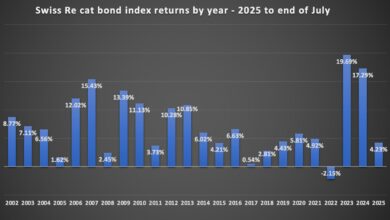Key Differences Expats Should Know

Singapore’s healthcare system is well-recognized for its high standards, modern facilities, and skilled professionals. However, despite this strong reputation, there are important differences between public and private hospitals that can affect accessibility, cost, and experience for expats.
In this Pacific Prime CXA article, we break down what sets public and private hospitals in Singapore apart. Whether you’re covered through your employer or choosing your own plan, understanding how the system works will help you make more informed decisions about your care.

Costs and Subsidization at Public vs. Private Hospitals in Singapore
Singapore’s public healthcare system is designed to provide accessible care to all citizens, regardless of income. It’s supported through subsidies, MediSave (mandatory savings), MediShield Life insurance, and endowment funds for low-income groups.
While affordable for locals, public healthcare benefits like MediSave and MediShield Life are only available to Singaporeans and permanent residents. Expats are not eligible for these subsidies and must pay full out-of-pocket costs at public hospitals.
On the other hand, private hospitals in Singapore operate independently and set their own rates, which are typically higher than public facilities. Subsidies do not apply, although Singaporeans may use MediSave to offset partial costs, subject to strict limits that rarely cover private care fully.
To access shorter wait times and upgraded amenities, many Singaporeans opt for supplementary or private health insurance. For expats without access to government subsidies or MediSave, having comprehensive private medical insurance is essential to avoid high medical expenses.
Wait Times at Public vs. Private Hospitals in Singapore
As of July 2025, waiting times for admission to public hospital wards in Singapore can vary widely depending on the facility. While some hospitals maintain efficient service, others face extended delays due to high patient volume.
Public hospitals such as Alexandra Hospital, Changi General Hospital, and Ng Teng Fong General Hospital report relatively short median wait times ranging from 1 to 2 hours.
Some public hospitals with higher patient loads may experience significantly longer wait times, ranging from a few hours to more than five hours. Sengkang General Hospital, in particular, reported wait times exceeding 15 hours.
By contrast, private hospitals in Singapore typically admit patients within 1 hour of seeing an emergency room doctor. This shorter wait time is one of the key reasons many expats and private patients opt for private healthcare facilities, especially when urgent or specialist care is needed.
Appointments at Public vs. Private Hospitals in Singapore
When it comes to non-emergency care, private hospitals in Singapore offer faster and more consistent service. Patients can book appointments in advance and doctors are scheduled to see you at a specific time, which can reduce your waiting times significantly and make for a more efficient experience.
In contrast, public hospitals in Singapore typically operate on a first-come, first-served basis. While some specialist outpatient clinics may allow limited advance bookings, general visits often involve long, unpredictable wait times, especially during peak hours or flu season.
For convenience, be sure to check out our updated list of public and private hospitals in Singapore, including contact details and appointment info.
Comfort at Public vs. Private Hospitals in Singapore
When it comes to patient comfort, the differences between public and private hospital rooms in Singapore are notable.
In public hospitals, most patients stay in shared rooms, such as in subsidized B2 or C-class wards, which typically house four to six patients. While A-class wards do offer single rooms, using them may limit or exclude the use of MediSave or other government subsidies.
Private hospitals, on the other hand, offer a wider range of room types, from shared rooms to premium suites. Though no subsidies apply, patients can expect more space, privacy, and luxury.
A top-tier suite at private facilities like Gleneagles Hospital features modern amenities such as a private living area, guest accommodations, and even in-room Nespresso machines, leading to greater comfort for patients and their families.
Doctors at Public vs. Private Hospitals in Singapore
Doctors in Singapore’s public hospitals are known for their strong clinical expertise, often receiving their education through Singapore’s reputable medical institutions. Public hospitals are also where many medical professionals gain extensive hands-on experience early in their careers.
In comparison, doctors at private hospitals are typically more senior and bring years of experience to the table. Many graduated from top medical schools abroad and often speak multiple languages, which can be an advantage for expats seeking care in English and other foreign languages.
Because private facilities operate on an appointment-based system and handle lower patient volumes, doctors can also spend more focused time with each case. This contributes to higher patient satisfaction, especially for those with complex or ongoing medical concerns.
Communication at Public vs. Private Hospitals in Singapore
In addition to private hospital doctors being more likely to speak foreign languages, hospital staff, in general, tend to be better suited to speak with non-Singaporeans when compared with public hospitals.
This fact has undoubtedly been exacerbated by the medical tourism trend, and private hospitals focusing on attracting foreign patients. In order to better be able to address their needs, private hospitals are incentivized to hire staff who speak multiple languages.
Equipment at Public vs. Private Hospitals in Singapore
Singapore’s public hospitals are well-equipped with modern technology and maintain high standards in medical care. Thanks to government investment, public facilities can perform a wide range of advanced procedures. However, private hospitals often lead in adopting the latest medical technologies.
With more funding and fewer administrative hurdles, private hospitals in Singapore are typically quicker to upgrade their equipment, making them a preferred choice for those looking for the most advanced care and latest technology available.
The Number of Public and Private Hospitals in Singapore
As of 2025, Singapore is home to 11 public hospitals and 9 private hospitals. While the numbers are fairly balanced, accessibility can vary depending on where you live or work. In some areas, a private hospital may be closer than a public one, or vice versa.
For this reason, it’s important to know in advance which hospital type you prefer and where the nearest facility is located. This helps ensure timely access to care, especially during emergencies or for ongoing treatments.

Local vs. International Health Insurance in Singapore
While local health insurance plans in Singapore can be more affordable, they often come with limited benefits, such as no outpatient care, maternity coverage, or global protection. This can leave expats paying more out of pocket, especially for private or international care.
International health insurance often offers more complete coverage that includes inpatient and outpatient care, maternity, mental health, direct billing, and access to top hospitals globally, making it ideal for expats who travel or relocate often.
Learn more in our guide to the top international health insurance providers for expats in Singapore.
International Health Insurance for Expats in Singapore
If you are an expat in Singapore who needs to obtain international health insurance, or you’re worried that your existing Singapore health insurance plan may not provide the coverage you need at private hospitals, Pacific Prime CXA is here to help.
With over 25 years of experience and global presence, we specialize in helping expats secure comprehensive private health insurance that fills the gaps left by public healthcare systems, all according to your needs and budget.
Our expert advisors can walk you through your options, compare top plans from trusted insurers, and provide a free, no-obligation quote tailored to your situation. Get in touch today for personalized support and peace of mind.
Frequently Asked Questions
Do expats have access to government healthcare subsidies in Singapore?
Expats are not eligible for government healthcare subsidies such as MediSave or MediShield Life. This means they must pay the full cost of care at public hospitals or secure a private health insurance plan that covers their needs.
Can private health insurance cover treatment at both public and private hospitals?
Most private health insurance plans offer coverage for both public and private hospitals. However, coverage limits, choice of specialists, and room types may vary depending on the plan and insurer, so it’s best to review your options carefully.
Is private health insurance mandatory for expats in Singapore?
While not legally required, having private health insurance is highly recommended for expats in Singapore because of the expensive cost of healthcare. Without government subsidies, even the cost of public healthcare services can quickly catch up to that of private hospitals.
Will private health insurance in Singapore cover my pre-existing conditions?
Some plans may exclude pre-existing conditions or impose waiting periods before coverage applies. However, international insurers may offer coverage with medical underwriting or added premiums. Speak with an advisor to find a plan that fits your health history.
What should I consider when choosing a private health insurance plan in Singapore?
Key factors include hospital access (private vs public), inpatient and outpatient coverage, maternity and dental benefits, direct billing options, exclusions, and your budget. A knowledgeable broker like Pacific Prime CXA can help you compare and choose the right plan.



